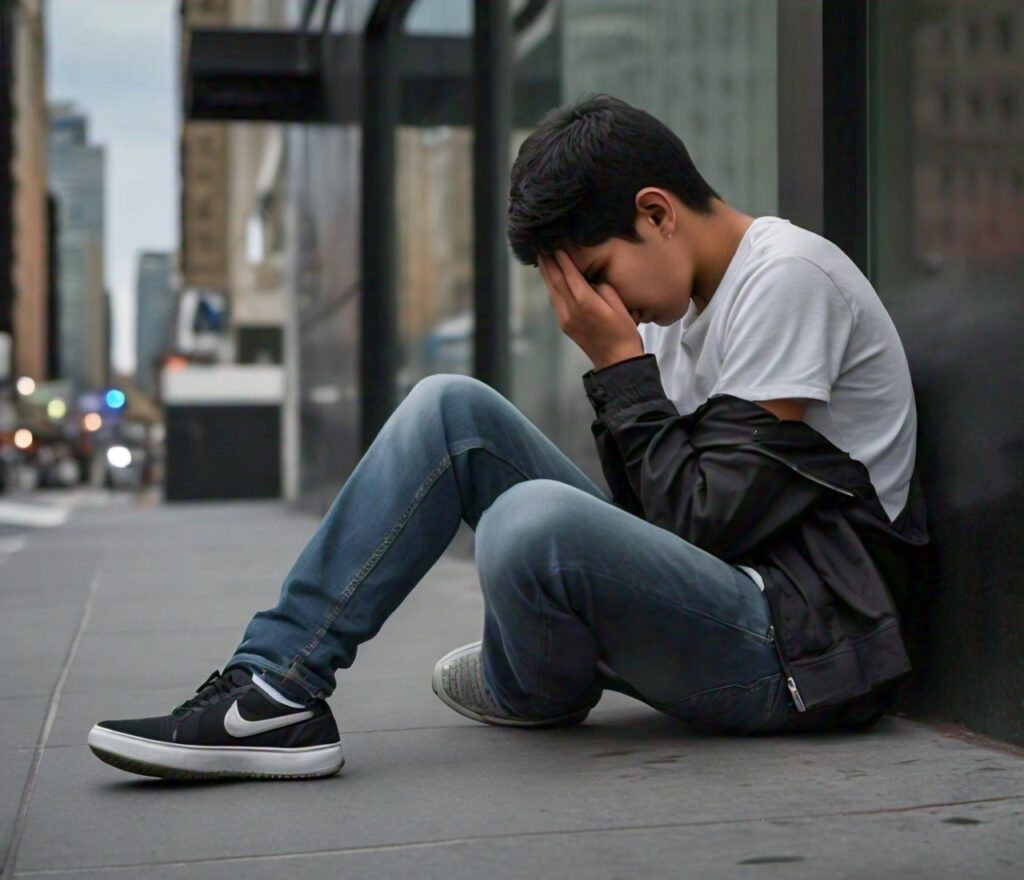Explore the profound emotional and psychological impacts that cyberbullying can have on children and teenagers. Like all forms of bullying, cyberbullying can trigger a range of significant effects, including anxiety, fear, depression, low self-esteem, behavioral issues, and academic challenges. Yet, cyberbullying stands out for its potentially even more devastating toll.
This heightened impact stems from several factors. Unlike traditional bullying, which tends to be confined to school environments and familiar bullies, cyberbullying can strike anytime, anywhere—day or night—and is often carried out by anonymous aggressors. This anonymity can make the bullying feel more constant and merciless.
Moreover, while cyberbullying often takes place in visible online arenas like social media, it can also unfold privately through direct messages. This secretive nature can leave young people to cope alone, struggling in silence with the ramifications. Understanding the full spectrum of cyberbullying’s effects not only enables you to support affected youths but also sharpens your awareness of the signs that could signal deep-seated troubles, warranting immediate attention and dialogue.

The Emotional Impact of Cyberbullying on Youth
It’s well-documented that cyberbullying is a major source of stress for young individuals. Studies indicate that around 32% of those who are targeted by cyberbullies experience significant stress symptoms.
Victims often suffer from feelings of embarrassment and hurt, and might even fear for their personal safety. Sometimes, they might unjustly blame themselves for the harassment they’re enduring. Below, we explore further emotional effects of cyberbullying.
Should you observe a shift in your child’s emotional state, it’s crucial to consult a healthcare provider to assess and address these changes.
Humiliation
The digital nature of cyberbullying makes the abuse seem inescapable. Youngsters are aware that once something is posted online, it’s nearly impossible to erase, leading to feelings of vulnerability and shame.
The widespread sharing of derogatory posts, messages, or texts amplifies these feelings. The knowledge that countless individuals are aware of the bullying can deeply humiliate the victim.
Isolation
Victims of cyberbullying often find themselves shunned and excluded in school settings, which can lead to severe feelings of loneliness. At a stage where peer relationships are vital, the lack of friendships can exacerbate the situation, potentially leading to further bullying.
In response, parents may advise children to disconnect from their digital devices. However, for many youths, these platforms are essential for maintaining social connections. Severing these ties can result in even greater feelings of isolation.
Understanding and addressing the emotional toll of cyberbullying is essential for supporting our youth in navigating these challenges effectively.
Anger
It’s common for victims of cyberbullying to experience anger. Studies show that anger is the most frequent reaction to online harassment, followed by feelings of upset and anxiety. In some cases, children who are targeted might contemplate revenge or retaliatory actions. However, this response is not only risky but can also perpetuate the cycle of bullying. If your child is experiencing intense anger due to cyberbullying, consulting with a counselor or therapist could be beneficial. These professionals can help them redirect their anger towards more constructive activities.
Feeling Powerless
Victims of cyberbullying often struggle with feelings of vulnerability and powerlessness. This is largely because cyberbullying can penetrate the safety of their homes via computers or smartphones at any time. The sanctuary they once found at home diminishes. The anonymity of bullies can intensify victims’ fears, especially when the perpetrator’s identity remains unknown. Even though some bullies may target acquaintances and reveal their identities, the unpredictability of their actions can leave victims feeling defenseless and scared.

Understanding the Mental Health Impacts of Cyberbullying
Cyberbullying can profoundly alter how victims perceive the world, often leaving them feeling devoid of hope and meaning in life. Individuals may withdraw from activities they once loved and reduce their interactions with loved ones. In severe cases, victims may develop depression and contemplate suicide.
Depression and Anxiety
Those subjected to cyberbullying often face heightened anxiety and depression, as well as other stress-related disorders. The constant battle with cyberbullying can erode their sense of joy and lead to increased feelings of loneliness and anxiety. Studies highlight a direct correlation between the prevalence of cyberbullying and the intensity of depressive symptoms. A notable study revealed that 93% of cyberbullying victims experienced significant sadness and a sense of helplessness.
Low Self-Esteem
Cyberbullying can severely impact an individual’s self-esteem. Victims might grow increasingly dissatisfied with their identity, questioning their worth and value. This issue is particularly acute among young people who feel a strong need for peer acceptance, leading to psychological distress and diminished self-esteem.
Academic Challenges
Cyberbullying can also disrupt a child’s education. Victims often show a marked disinterest in school, leading to increased absenteeism as they avoid the perpetrators or cope with humiliation from online interactions. Their academic performance may decline due to difficulty in focusing and studying, which can lead to dropping out or forgoing further education after high school.
Suicidal Thoughts and Self-Harm
In extreme cases, the intense emotional toll of cyberbullying leads some to self-harm, such as cutting or burning themselves. Research has consistently shown a link between bullying and self-harm. Moreover, the relentless nature of cyberbullying significantly raises the risk of suicidal thoughts. Victims overwhelmed by ongoing harassment may feel trapped and consider self-harm as a way out.
Understanding and addressing the mental health consequences of cyberbullying is crucial for supporting those affected and preventing further harm.

Understanding the Behavioral Impact of Cyberbullying on Children
Children subjected to cyberbullying may exhibit behavioral patterns similar to those experiencing traditional bullying. Common signs include a noticeable decrease in interest in activities they once enjoyed, coupled with a tendency to hide their online interactions.
In severe or ongoing cases of cyberbullying, the behavioral shifts can be more pronounced. Here are some significant changes to watch for:
- Increased Substance Use: Research indicates that children who face harassment online are at a higher risk of substance abuse. For instance, a study revealed that victims of cyberbullying are 2.5 times more likely to use substances like marijuana or to partake in binge drinking compared to their non-bullied counterparts.
- Avoidance of School: The dread of attending school can become overwhelming for cyberbullied kids. As a result, it’s fairly common for them to skip school days or engage in behaviors that lead to suspensions or detentions. According to one survey, cyberbullied students reported multiple instances of school disciplinary actions within the last year.
- Carrying Weapons to School: A particularly alarming trend is the increased likelihood of cyberbullied children carrying weapons to school. One survey highlighted that these children were eight times more likely to bring a weapon to school in the past month than those who were not cyberbullied.
Recognizing these signs early can be crucial in providing the necessary support and interventions to help affected children navigate these challenges.

Understanding the Physical Impact of Cyberbullying
Cyberbullying can have a profound effect on children, often involving multiple perpetrators which can intensify feelings of stress and helplessness. This psychological burden can translate into physical symptoms, such as:
- Gastrointestinal Issues: The stress from cyberbullying can lead to or exacerbate stomach-related problems, including upset stomach, abdominal pain, and even stomach ulcers. Children might also suffer from recurring nausea, vomiting, and diarrhea.
- Eating Disorders: Affected children might alter their eating habits, perhaps skipping meals or overeating. As they grapple with feelings of losing control over their lives, they may attempt to manage their eating behaviors as a way to regain some sense of order. This can escalate into serious eating disorders, particularly if the bullying affects their self-image.
- Sleep Problems: The impact of cyberbullying extends to sleep patterns. Kids dealing with online harassment may face difficulties such as insomnia, excessive sleeping, or frequent nightmares.
If you observe changes in your child’s eating or sleeping patterns, or if they show new or worsening physical symptoms, it’s crucial to consult with a pediatrician or healthcare provider. These signs might indicate deeper issues that require professional attention.
Conclusion
If your child is facing cyberbullying, it’s crucial to support them in addressing the issue to improve their situation. This often involves reporting the bullying to entities like social media platforms, educational authorities, or even law enforcement to ensure the harassment is halted. Familiarize yourself with the legal aspects of cyberbullying to effectively advocate for your child.
Moreover, it’s vital not to overlook the emotional impact of cyberbullying on your child. Strive to empower them by maintaining open communication daily, and monitoring any shifts in their mood or behavior closely. If you observe any concerning changes, don’t hesitate to consult a healthcare professional.
Victims of cyberbullying may also find it beneficial to work with a counselor or therapist. These professionals can guide them in developing healthy coping mechanisms to handle the stress caused by cyberbullying, thereby fostering resilience and a strong spirit to navigate these challenging times.
FAQs: Cyberbullying and its impacts
What are the emotional effects of cyberbullying on children?
Cyberbullying can lead to severe emotional distress for children, including anxiety, depression, and low self-esteem. Victims often experience feelings of humiliation, isolation, and powerlessness, which can manifest as fear, sadness, and an overall sense of vulnerability. These emotional impacts can significantly affect their daily lives, influencing their mood, behavior, and self-perception.
How can cyberbullying affect a child’s mental health?
The mental health impacts of cyberbullying are profound, with victims showing increased signs of anxiety, depression, and other stress-related disorders. The constant exposure to negative interactions can erode their sense of joy and lead to heightened feelings of loneliness. In severe cases, it may even result in suicidal thoughts and tendencies toward self-harm.
What behavioral changes might indicate a child is being cyberbullied?
Behavioral changes in a cyberbullied child can include a loss of interest in activities they once enjoyed, increased secrecy about online activities, and avoidance of school. Some children might also exhibit signs of substance use as a coping mechanism. Recognizing these changes early can help in providing appropriate support and interventions.
Can cyberbullying lead to physical health issues in children?
Yes, the stress from cyberbullying can lead to physical symptoms such as gastrointestinal issues, eating disorders, and sleep disturbances. Children may experience stomach pains, changes in eating habits, insomnia, or excessive sleeping, which are often signs of the psychological stress they are under.
What steps can parents take if they suspect their child is being cyberbullied?
Parents should first ensure open, supportive communication with their child to understand and validate their feelings. Reporting the bullying to relevant authorities like schools, social media platforms, and potentially law enforcement is crucial. Consulting healthcare professionals for emotional or physical symptoms is also advised. Additionally, parents can help their child by seeking guidance from counselors or therapists who specialize in dealing with cyberbullying, to develop effective coping strategies and strengthen resilience.
